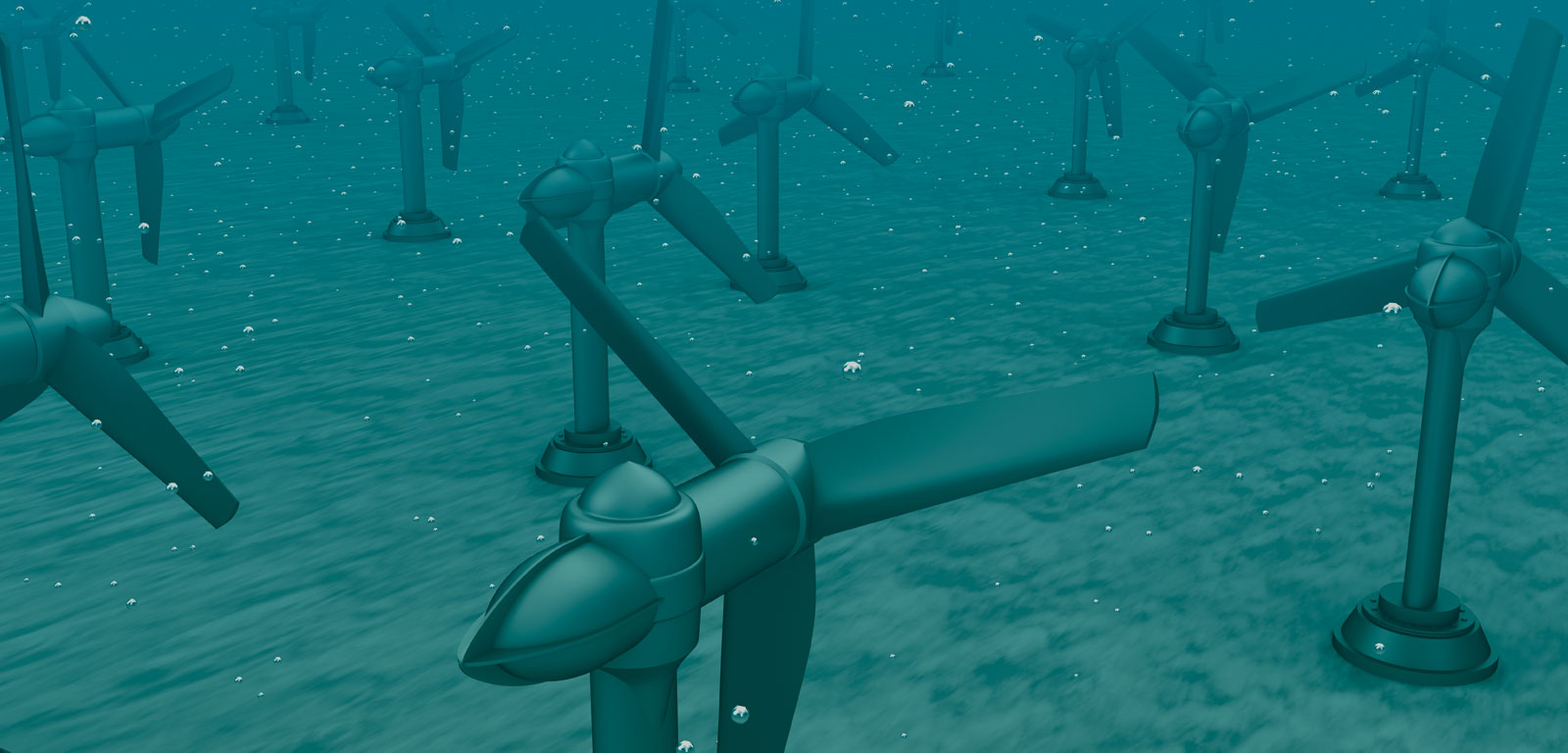Subject
Marine renewable energy
General details of the subject
- Mode
- Face-to-face degree course
- Language
- English
Description and contextualization of the subject
This part of the course will deal with the marine renewable energy resources, markets and technologies. Building on other courses dealing with hydrodynamics, it will focus on energy performance and efficiency and their assessment using techniques studied in the other courses.To provide students with (i) good understanding of the fundamentals of wind turbines, tidal turbines and wave energy converters performances and (ii) a first experience with the assessment of the performance of these technologies.
Teaching staff
| Name | Institution | Category | Doctor | Teaching profile | Area | |
|---|---|---|---|---|---|---|
| BLANCO ILZARBE, JESUS MARIA | University of the Basque Country | Profesorado Titular De Universidad | Doctor | Not bilingual | Fluid Mechanics | jesusmaria.blanco@ehu.eus |
| EGUIA LOPEZ, PABLO | University of the Basque Country | Profesorado Agregado | Doctor | Not bilingual | Electrical Engineering | pablo.eguia@ehu.eus |
| MARTINEZ DE ALEGRIA MANCISIDOR, IÑIGO | University of the Basque Country | Profesorado Agregado | Doctor | Bilingual | Electronic Technology | inigo.martinezdealegria@ehu.eus |
Competencies
| Name | Weight |
|---|---|
| Explain and demonstrate knowledge and understanding of the resource and market for offshore wind, tidal energy and wave energy | 25.0 % |
| Explain and demonstrate knowledge and understanding of offshore wind turbine technologies, tidal turbines and wave energy converters | 25.0 % |
| Have knowledge of numerical and experimental methods and tools for the performance assessment of offshore wind turbines, tidal turbines and wave energy converters | 25.0 % |
| Apply the acquired knowledge for the design and sizing of energy convertors | 25.0 % |
Study types
| Type | Face-to-face hours | Non face-to-face hours | Total hours |
|---|---|---|---|
| Lecture-based | 28 | 40 | 68 |
| Seminar | 2 | 5 | 7 |
| Applied computer-based groups | 20 | 30 | 50 |
Training activities
| Name | Hours | Percentage of classroom teaching |
|---|---|---|
| Classroom/Seminar/Workshop | 2.0 | 100 % |
| Drawing up reports and presentations | 30.0 | 0 % |
| Expositive classes | 28.0 | 100 % |
| Reading and practical analysis | 5.0 | 0 % |
| Systematised study | 40.0 | 0 % |
| Working with it equipment | 20.0 | 100 % |
Assessment systems
| Name | Minimum weighting | Maximum weighting |
|---|---|---|
| Drawing up reports and presentations | 50.0 % | 100.0 % |
| Written examination | 50.0 % | 100.0 % |
Learning outcomes of the subject
To have knowledge of the marine renewable energy market and available resourcesTo know the generation technologies applied in marine renewable energy facilities
To evaluate the performance of a marine renewable generation technology using numerical simulation tools contrasted with experimental data
To design and size marine renewable energy converters
Temary
Lesson 1 Fundamental of turbine performancesThis course is an introduction to the ¿offshore wind turbines¿ and ¿current turbine¿ classes. The objective is to understand the fundamentals of turbines performances, with highlight on marine applications. We will focus on the main operating principle of turbines, followed by the understanding of flow physics and performances of turbine blades operating in marine environment.
Lesson 2 Current turbines
This part of the course will describe, the resource, market and advanced technologies of current turbines. Experimental and numerical methods for studying current turbines will be outlined. An overview of current activities in the field of current turbines will be given. Numerical exercises will aim at calculate the performance of a current turbine in different operating conditions.
Lesson 3 Offshore wind turbines
Firstly, this part of the course will describe the wind resource at sea. Then, the components of a wind turbine will be detailed. Rotor technologies, drive-train and generators, control as well as bottom fixed and floating foundations will be addressed. Experimental methods will be outlined as well as park effects. Numerical exercises will be carried out in order to investigate the dynamic behaviour of floating offshore wind turbines
Lesson 4 Wave energy converters
The objective of this part of the course is (i) to give to the student a good understanding of the current status of wave energy conversion technologies in terms of potential and actual performance. Thus, it will address first the wave energy resource and market. An historical perspective of wave energy conversion will be given and state-of-the art of the technology will be described. Fundamentals of wave energy conversion and energy performance will be highlighted. Energy performance of current technologies will be discussed as well as project development methodologies.
Seminar 1 Application-oriented seminar held by an industrial actor of renewable marine energy
Bibliography
Basic bibliography
¿ J. Falnes (2002) Ocean Waves and Oscillating Systems: Linear Interactions Including Wave-Energy Extraction. Cambridge University Press.¿ J. Cruz (2008) Ocean Wave Energy: Current Status and Future Perspectives. Springer.
¿ B. Multon (2011) Marine Renewable Energy Handbook. Wiley.
¿ J.J. Newman; Marine Hydrodynamics, MIT press, 1977.
¿ I.H. Abbott, A.E.Von Doenhoff, Theory of wing section, Courier Corporation, 1959.
¿ J.F. Manwell, J.G. MCGowan& A.L. Rogers (2009) Wind energy explained ¿ Theory, Design and Application. Wiley.
¿ M. C. Brower (2012) Wind resource assessment ¿ A practical guide to developing a wind project. Wiley.


